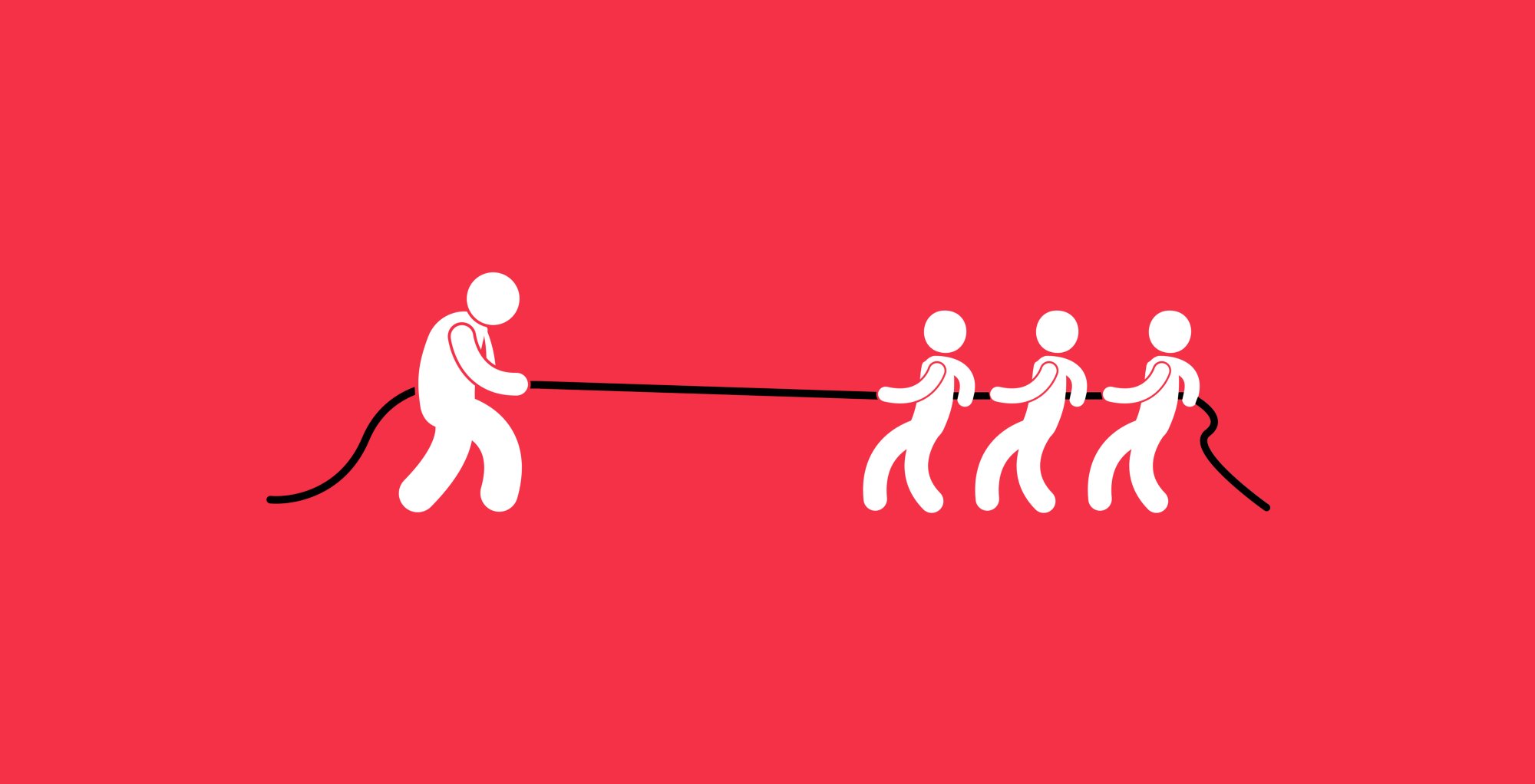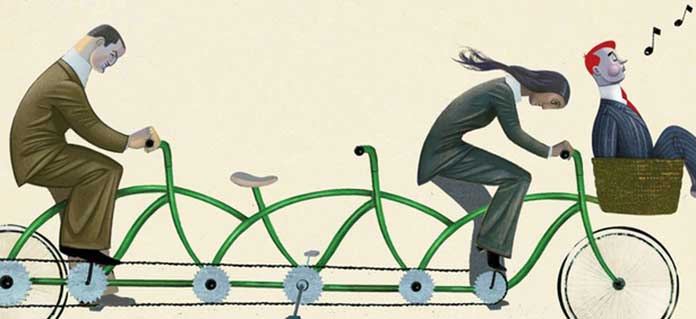The Ringelmann effect is the tendency for individual members in a group to become increasingly less productive as the size of the group increases. Discovered by the French agricultural engineer Maximilien Ringelmann, born in 1861, this effect shows an inverse relationship between the size of a group and the size of the individual contribution of group members to the completion of a task. When examining the relationship between process loss, reduction in performance effectiveness or efficiency, and group productivity, Ringelmann found that when group members work together on a task, for example, pulling a string requires significantly less effort than if members act alone. Ringelmann says that as more people are added to a group, the group often becomes more and more inefficient; discovered that it violated the notion that group work and team participation reliably leads to increased effort on the part of the members.
It is not easy and understandable for everyone to explain this effect with abstract words, so I will give a few examples. The most important of the examples is Ringelmann’s experiment while explaining this effect. The experiment is called the Ringelmann Rope Experiment. The force spent on the rope is measured with a dynamometer attached to the end of the rope. Let’s imagine 8 people with 100 units of force, so if they pull the rope together, the dynamometer should show 800 units of force. First, 1 person pulls the rope and the dynamometer shows 100 units of force as expected. Then another person comes, and the total force should be 200 units, but this value drops to 180. Then, with 4 people, 300 units of force are applied instead of 400 units. When the last 8 people come, 8 people apply a force of 400 units instead of 800 units. In other words, there is a 50% performance loss per person. Ringelmann also discovers this effect, which has become synonymous with his name, by recording and sharing the results of these experiments and his observations.
To be clear, this effect has been proven by reasonable and logical experiments and research. For this reason, I strongly support this effect. The more pressure and responsibility on a person in an event or situation, the more likely that person will be able to solve that event with more creative and unique solutions. If that pressure decreases and is divided into people, instead of using one hundred percent of his capacity, he uses it psychologically much less than his capacity due to his trust in other people. Although this division reduces the fatigue rate of the person, it also slows the rate of resolution of the event or situation.

